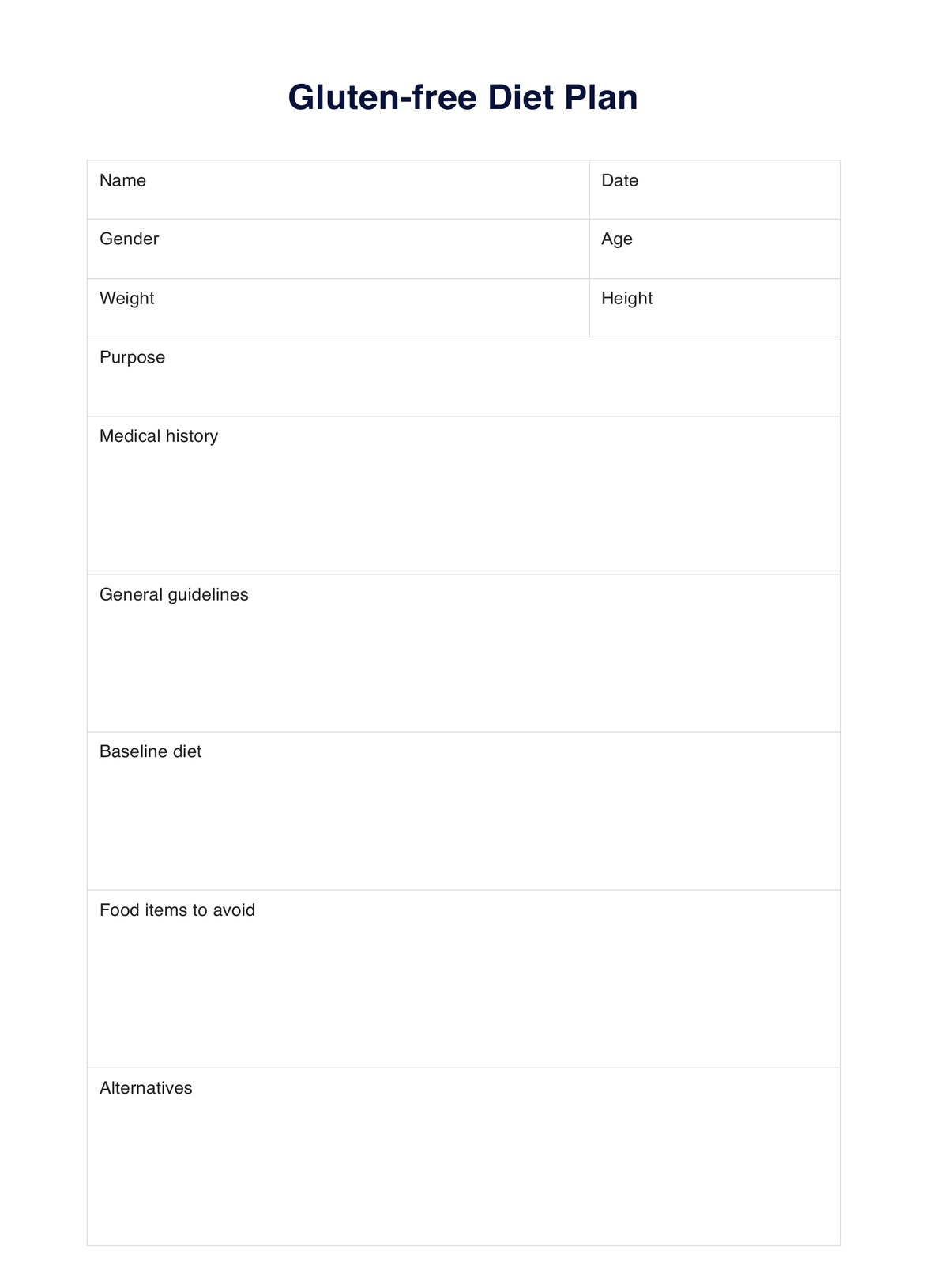Yes, Gluten-free Diets are necessary for individuals with celiac disease, wheat allergy, or non-celiac gluten sensitivity. These conditions can cause adverse reactions and health problems when gluten is consumed, so a Gluten-free diet is essential to manage these conditions and maintain good health.

Gluten Free Diet Plan
Access a free Gluten-free Diet Plan for your clients. Learn how to use the template to support individuals in achieving their health goals while following a gluten-free lifestyle.
Gluten Free Diet Plan Template
Commonly asked questions
Individuals with celiac disease, wheat allergy, or non-celiac gluten sensitivity use Gluten-free Diets typically follow a Gluten-free Diet. They should follow this diet to manage their condition and avoid adverse reactions to gluten-containing foods.
The duration of a Gluten-free Diet varies depending on the individual's specific condition and health status. Individuals with celiac disease must follow a strict Gluten-free diet for life. In contrast, those with non-celiac gluten sensitivity may follow it for as long as necessary to manage their symptoms.
EHR and practice management software
Get started for free
*No credit card required
Free
$0/usd
Unlimited clients
Telehealth
1GB of storage
Client portal text
Automated billing and online payments











